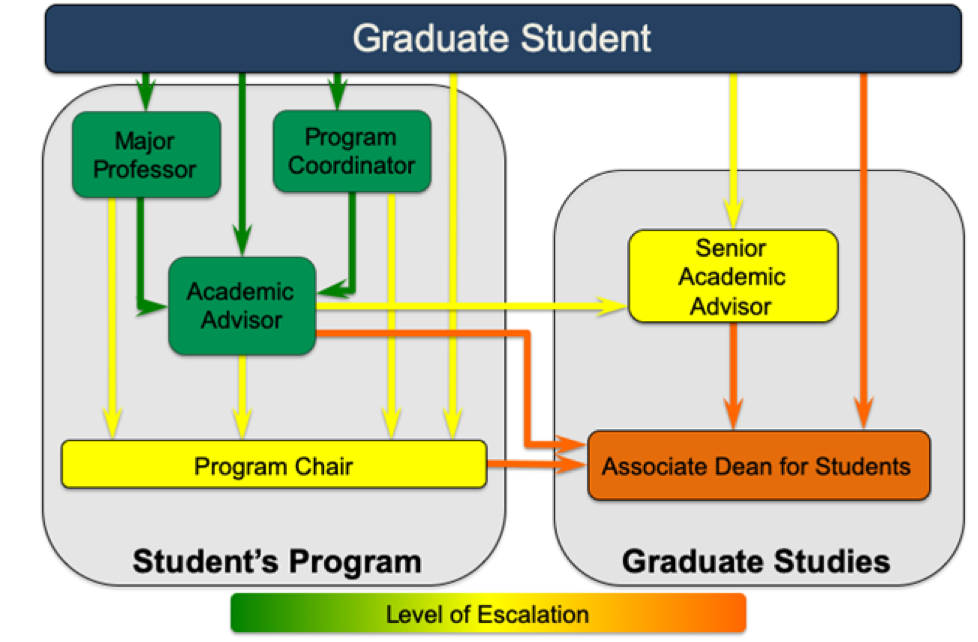Dealing With Challenges
Whether you're experiencing a gap in funding or a conflict with a professor, UC Davis Graduate Studies can help you navigate and overcome obstacles to your academic success.
Our staff and faculty are available to meet with all graduate students individually to discuss any problems or concerns you are experiencing.
- Faculty/Graduate Student Relationships (including Mentoring Guidelines)
- Conflict Negotiation
- Academic Progress & Status
- Interpersonal Concerns
- Funding/Program Concerns
- Your Rights And Responsibilities
- Research concerns, including foreign financial conflicts of interest (COI), conflicts of commitment (COC) and other financial support and foreign affiliation issues
If you are in distress and in need of immediate counseling, mental health staff are available 24 hours a day, 7 days a week by phone at (530) 752-2349.
Your Support Team
Early action is key. If you are experiencing an issue and need help, please email your Senior Academic Advisor (SAA), and we will promptly connect you with someone who can help.
Depending on the nature of the problem or concern, you may be referred to a Senior Academic Advisor, a staff psychologist, financial services, or one of our Diversity Officers.
Senior Academic Advisors provide holistic guidance to graduate students. SAAs are housed within Graduate Studies, separate from specific programs or departments. This position allows them to act as a trusted resource, advocating for students while maintaining impartiality in balancing the needs of individual programs.

Should your situation require additional support, Ellen Hartigan-O'Connor, the Associate Dean for Graduate Students and Postdoctoral Scholars, can act as an advisor and advocate for graduate students. The Graduate Studies leadership team takes a student-centered approach and can provide help problem-solving, identifying resources, and taking formal action if requested by the student.

